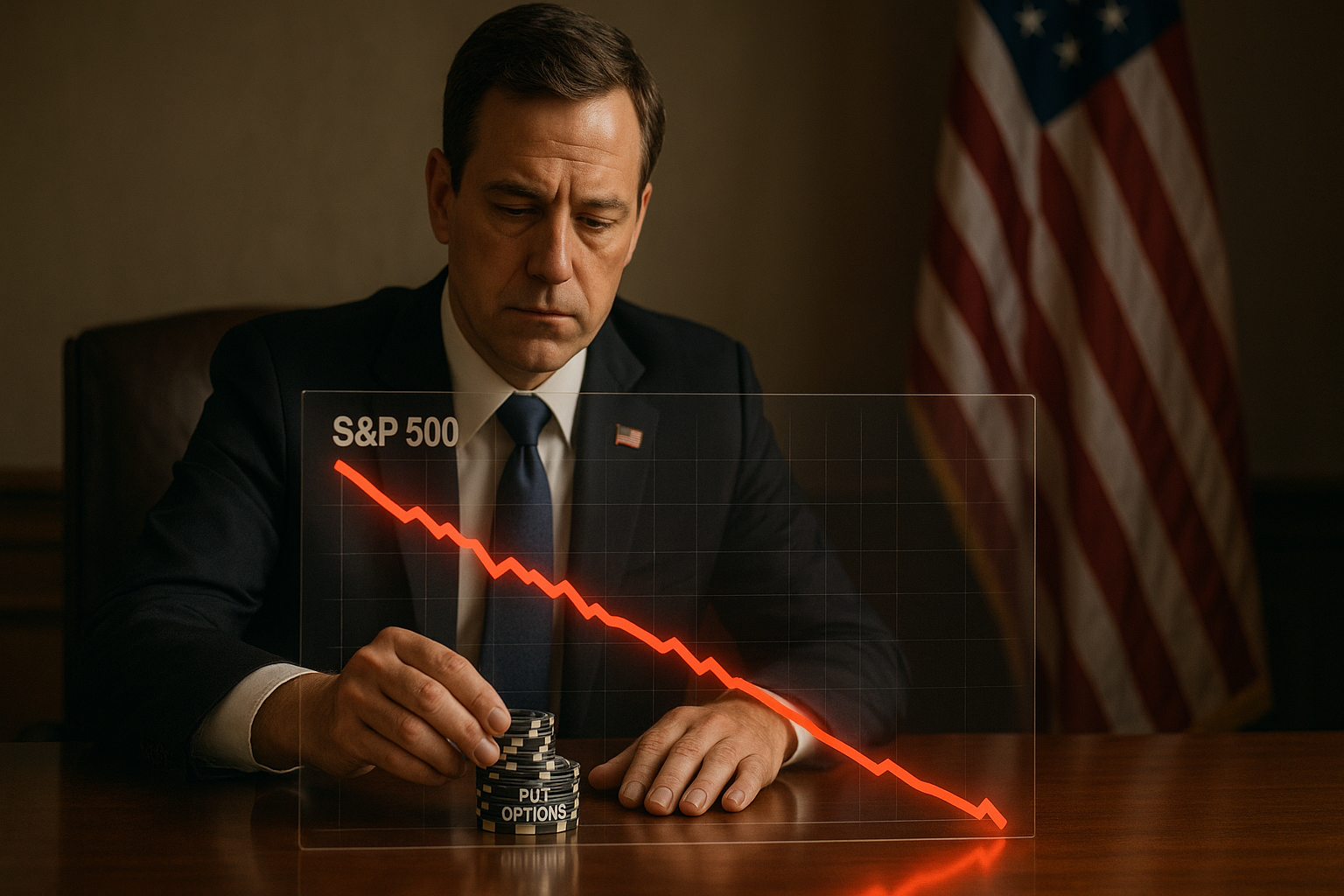There's something deeply unsettling about learning that one of our elected officials is financially betting against America's economic success. Not metaphorically—I'm talking about actual financial positions designed to profit if our economy tanks.
The revelation this week that Florida Representative John Rutherford holds put options on the S&P 500 left me wondering what exactly we've come to. For those who don't speak Wall Street, buying puts is essentially placing a wager that something's value will drop. You make money when things go bad. It's a bear move. A downside play.
I've covered Congressional finance stories since 2019, and this one hits different.
Sure, I understand the concept of hedging. Anyone with investment experience gets it. You're protecting assets against potential market downturns—it's basic risk management. But there's a world of difference between prudent portfolio protection and an elected representative positioning themselves to potentially benefit from America's economic suffering.
Congresspeople already navigate a minefield of conflicts. They vote on legislation that directly moves markets. They sit in closed-door briefings that would make hedge fund managers drool with envy. Remember those suspiciously timed stock trades during the early pandemic days? Yeah. That happened.
But shorting the S&P 500? That crosses into new territory.
The S&P isn't just any financial instrument—it's practically a barometer for American prosperity. When someone sworn to serve the public good bets against it... well, the incentive structure there is problematic, to say the least.
Now, I'm not suggesting Rutherford is twirling his mustache and plotting economic sabotage to cash in on his puts. That would be cartoonish. But incentives matter.
(I spoke with three behavioral economists for this piece who all emphasized the same point.)
There's this concept called "motivated reasoning" that explains how our brains subtly shift perspective when we have skin in the game. We unconsciously give more weight to information supporting outcomes beneficial to us. If you're positioned to profit from market decline, you might just find yourself more receptive to doom-and-gloom economic forecasts. You might dismiss positive signals as temporary blips.
For most regular investors, this just means potentially poor personal financial decisions. For lawmakers? The implications are vastly more consequential.
The counterargument has merit too. Maybe we want representatives who feel economic pain when constituents do. There's something to be said for shared fate.
But imagine if your local fire chief took out insurance policies that paid him personally if neighborhood houses burned down. Even with the purest intentions, wouldn't that create... questions?
What's the fix here? Blind trusts? Limited investment options for Congress? Each approach has complications.
At minimum, though, perhaps we should consider whether those elected to represent America's interests should be allowed to place financial bets against those very interests. There's something fundamentally off about it.
Having attended several Congressional ethics committee hearings last year, I can tell you reform moves at a glacial pace—if at all.
Maybe Rutherford just has a sophisticated, professionally-managed hedging strategy. Perhaps those puts represent a tiny fraction of a broadly diversified portfolio.
But in an era where public trust in government institutions is circling the drain, even the appearance of misaligned incentives matters.
Look, markets respond to incentives. Politics responds to incentives. And right now, we've created a system where those steering the ship of state can buy financial hurricane insurance while assuring passengers the forecast looks sunny.
That's... not great.
